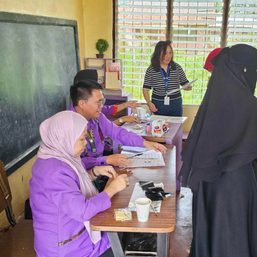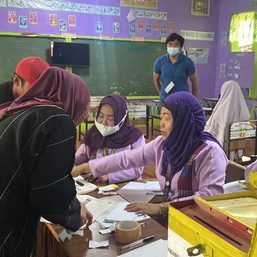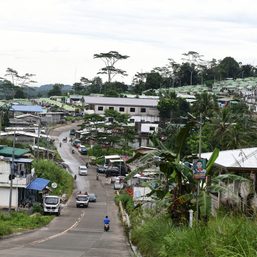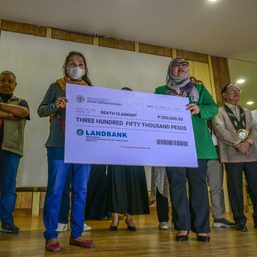SUMMARY
This is AI generated summarization, which may have errors. For context, always refer to the full article.
![[REFLECTION] Promoting peace, justice, and dialogue in Marawi](https://www.rappler.com/tachyon/2022/09/TL-Promoting-Peace-Justice-Marawi-September-23-2022.jpg)
What comes to your mind when you hear the name Marawi?
Many things have been said about the city of Marawi. It is known, for one, as a dangerous city where ISIS-linked militants launched a bloody and months-long siege of Marawi that destroyed the city and displaced a lot of civilians.
These events were present in our minds when I along with my friends coming from different countries went for immersion in Marawi as part of the Asia Pacific Theological Encounter Program (APTEP). This program was developed by the Jesuits in Indonesia to help the Society of Jesus respond to the challenges of the Church in the area of interreligious dialogue, particularly with Muslims.
In this one-week immersion program, I lived in the house of a Muslim family in a residential area near Mindanao State University. As I stayed with my foster family, I learned about the struggles of Meranaw Muslims who received a lot of stigma and negative perceptions from outsiders. In one of our conversations, Intesar Aba-Conding Ali, one of Lola Raihana’s daughters, shared that whenever she introduces herself as a Meranaw, people become suspicious and ask her whether the terrorists are still present in Marawi. It is undeniable that in the past, Marawi was known as an unsafe city. But through the years, the city has been steadily being reconstructed and rehabilitated.
Based on my experience of living there, the city of Marawi is relatively safe to visit and even has the potential for tourism. The cool air and weather of Marawi reminds me of the cool city of Baguio. One of my immersion friends, a South Korean, said he felt safer walking in the busy streets of Marawi than in Manila. This sense of security and enthusiasm for promoting a peaceful situation is also in line with the spirit of Mindanao State University, which has a mandate to become the National Peace University in the Philippines.
The Marawi siege that occurred in 2017 significantly impacted its citizens. I had the opportunity to visit Ground Zero, which was the place most affected by the war between ISIS troops and the Philippine military. Many buildings were damaged, the Cathedral was destroyed, and thousands of residents had to be relocated to temporary settlements. Lola Raihana, our foster family’s matriarch, shared how terrible and gripping the atmosphere was at that time.

One story that inspired me from Lola Raihana was when their family decided to open their doors to Filipino soldiers as a place where they can rest and get food. In the name of a deep sense of humanity, Lola Raihana’s family ministered to the needs of the soldiers and their neighbors amidst the dangers and threats of ISIS troops to attack them anytime. Indeed, this heroic attitude cannot arise without strong faith and deep trust in God’s protection in them.
I also had the opportunity to visit the Moro Islamic Liberation Front (MILF) headquarters in Marantao and listen to the sharing from a commander and his members. They shared how many dialogues and agreements with the government have been made, but were not implemented significantly. They also hope to become an autonomous area with a degree of freedom from an external authority. The saddest complaint is about the inadequate supply of basic needs for residents such as a steady supply of water and electricity. It is an irony that they have Lake Lanao that supplies electricity to the entirety of Mindanao. But still, they experience constant power interruptions and a shortage of water. I can attest to this as I experienced power outages many times while staying at Lola Raihana’s house.
One week of living, meeting, and having a dialogue with people in Marawi has opened my eyes to the realities of the Muslims in general and the Meranaw people in particular. The spirit of peace and the desire to build dialogue and maintain a peaceful and safe atmosphere were felt during my time there. Marawi will undoubtedly continue to improve itself to become a safer place to visit. As a foreigner in the Philippines, I found peace amid the people of Marawi, who continue to struggle to be respected, accepted, and cared for as human beings and citizens of this country.
I felt that I could find God precisely from the simplicity of Lola Raihana’s family who openly accepted us foreigners and came from a different religion. There was no bad prejudice and instead, they treated us like their own family. When I went to a modest mosque close to the home of our foster family and saw a young boy sincerely recite the call to prayer for an Isha prayer (evening prayer), I also came to find God personally. It seemed to me that the young boy was having a personal and profound encounter with God at that precise moment through the chanting of his extraordinarily melodic and exquisite call to prayer.
This encounter has strengthened my belief in the existence of the spirit “finding God in all things.” In remote areas of Marawi City, in a simple mosque, I witnessed how our Muslim brothers and sisters meet God personally. I believe God is there, interacting with the people who are praising and praying to Him. – Rappler.com
Septian Marhenanto is a Jesuit scholastic from Indonesia. He is now studying theology at Loyola School of Theology – Ateneo de Manila University and doing an internship at Rappler.
Add a comment
How does this make you feel?








There are no comments yet. Add your comment to start the conversation.